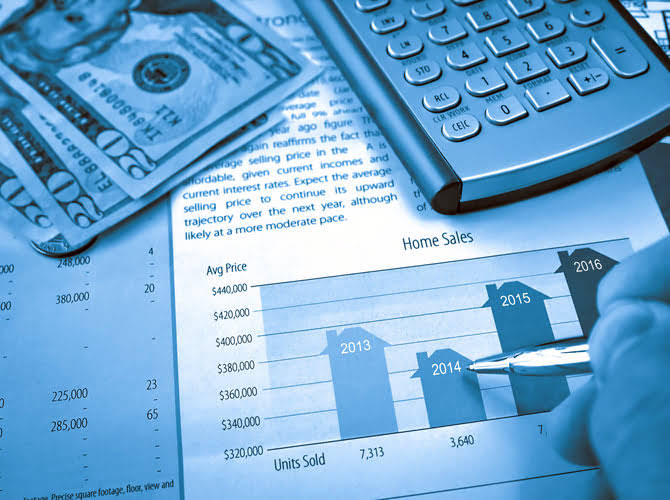
It can easily absorb this annual payout while fueling its cloud and AI-driven ambitions. Its search dominance, AI leadership, and massive cash position helped make it a leading tech company. The new dividend does not appear to change that for the better or for the worse. Ultimately, investors should continue to focus on the non-dividend case for owning Alphabet stock. At less than 0.5% yearly, the dividend yield is around one-third of the S&P 500 average.
- Similar to cash dividend, the stock dividend reduces the balance of retained earnings account on equity side of the balance sheet.
- At current levels, it is unlikely to motivate shareholders who can earn a higher cash return from a bank account.
- Lengthier ownership entitles the investor to reduced income tax rates, while a shorter ownership period taxes dividend recipients according to their ordinary income tax brackets.
- First of all, shareholders need some form of return for their investment in a company.
- A stock dividend provides an investor with additional shares in the company.
- Issuing a stock dividend instead of a cash dividend may signal that the company is using its cash to invest in risky projects.
Tax Implications
Issuing a stock dividend instead of a cash dividend may signal that the company is using its cash to invest in risky projects. The practice can cast doubt on the company’s management and subsequently depress its stock price. A company that does not have enough cash may choose to pay a stock dividend in lieu of a cash dividend. In other words, a cash dividend allows a company to maintain its current cash position. Otherwise, the different effects of stock dividends means that those can be a reason to use them as well.
Dividend Tax Considerations
These dividends are typically paid on a per-share basis, meaning a shareholder receives a set amount of money for every share they own. For example, if an investor owns 100 shares of a stock that pays a cash dividend of $0.25 per share, the shareholder would receive an extra $25 from the company. Another consequence of cash dividends is that receivers of cash dividends must pay tax on the value of the distribution, lowering its final value. Cash dividends are beneficial, however, in that they provide shareholders with regular income on their investment along with exposure to capital appreciation.
- But this does not mean that cash dividends are bad, they just lack choice.
- If you’re eligible for the dividend, you will receive the payment through your brokerage account or by a check sent to your registered address.
- Dividends represent the reward that a company pays to its shareholders in exchange for their investment.
- Its number of outstanding shares is around 12.35 billion, meaning the dividend will cost about $10 billion annually at current levels.
- For example, someone who owns 300 shares of stock in an organization that administers a $0.10 dividend would receive a cash bonus of $30.
- While cash and stock dividends are both dividends in the technical sense, they are very different when it comes to their impact on investors and their tax liability.
Individual Financial Goals and Circumstances
For this reason, shareholders typically believe that a stock dividend is superior to a cash dividend – a cash dividend is treated as income in the year received and is, therefore, taxed. Deciding between an organization that issues cash or stock dividends boils down to your financial goals. Stock dividends carry more risk, but they also have the potential to increase in value over time.
For companies, cash dividend payments tend to attract longer term and institutional investors, which often leads to greater stability of the share price. For instance, stock dividends might be more advantageous than cash dividends when it comes to the issue of taxation. Basically, stock dividends offer stocks, which don’t get taxed until the shareholder chooses to sell their shares. https://www.bookstime.com/ However, this might not be the case if the dividend was offered in either cash or stocks, in which case, interested individuals might be obligated to pay taxes even if they chose the latter over the former. Regardless, taxation is always a serious matter, which is why shareholders should look further into it for their particular jurisdiction so that they won’t make any mistakes.
The key takeaway from our example is that a stock dividend does not affect the total value of the shares that each shareholder holds in the company. As the number of shares increases, the price per share decreases accordingly because the market capitalization must remain the same. Due to this, interested individuals should pay very close attention to when a corporation uses cash dividends versus when a corporation uses stock dividends. As a result, interested individuals can definitely use them as a chance to glean insight into a corporation’s inner workings. Every single reason that a corporation can have for paying out a cash dividend can be applied to paying out a stock dividend as well.
Do All Companies Pay Dividends?
The question is whether this changes the investment case for the company. For example, consider an investor with $1,000 looking to invest in Stock A or Stock B. Stock A is priced at $2,000 while Stock B is priced at $500. Stock A would be deemed “unaffordable” for the both cash dividends and stock dividends investor since he only has $1,000 to invest. Certain financial information included in Dividend.com is proprietary to Mergent, Inc. (“Mergent”) Copyright © 2014. ETFs and funds that prioritize investments based on environmental, social and governance responsibility.

As with constant dividend policy, the residual dividend policy can create volatile returns for shareholders depending on the profits, capital expenditure, and working capital requirements of a company. However, investors are more likely to accept a residual dividend policy as it allows companies to use profits for future growth, which results in higher returns in the future for investors. Mostly, the market price is used for recording only small stock dividends; in large scale distributions, companies use par or face value. A stock dividend is considered a small stock dividend when its quantum is 25% or less of the outstanding shares just before the declaration. When the quantum of additional distribution is larger than 25% of the existing number of outstanding shares, the distribution is said to be a large stock dividend.
CompoSecure Reports Record First Quarter 2024 Financial Results and Declares Special Cash Dividend
The shares issued as stock dividend will be 5,000 shares of face value $10 each (1,00,000 × 5%). Dividend taxation in other countries may be subject to substantially different policies. For example, Canadian investors may be eligible for a dividend tax credit that offsets the tax payable on dividends earned. In the U.S. and Canada, quarterly dividends are common, while in Australia and Japan, semi-annual dividends are typical, and in Germany, annual dividends are the norm.
A stock dividend provides an investor with additional shares in the company. Recipients may receive fractional shares proportionate to their existing holdings or total shares. Stock dividends increase the stockholder’s proportionate ownership of the company.…
